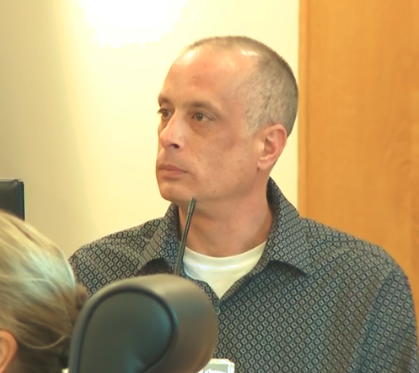By GARRY RAYNO, InDepthNH.org
CONCORD — Senate budget writers began work on the state’s largest department Friday as Health and Human Services outlined budget needs and obligations.
Much of the discussion with Health and Human Services Commissioner Lori Shibinette centered on the department’s actions and what it plans to do to reduce the number of children and adults waiting for mental health services in hospital emergency rooms.
Lawmakers and department officials have focused for a number of years on reducing the number of adults in emergency rooms waiting to be admitted to New Hampshire Hospital, the state’s psychiatric hospital.
But Shibinette told Senate budget writers the pandemic has made clear “the unprecedented need for children’s behavioral health services. The needs for children have skyrocketed.”
She said the problem is not enough in-patient beds, but the solution is not more beds, but to eliminate the crisis through prevention and that has to be done at the community level.
The lack of transitional housing beds for patients at New Hampshire Hospital who no longer need that level of care but remain in the facility because they have nowhere to go, is often cited as one of the major reasons for the backlog of patients in hospital emergency rooms.
During the last budget cycle, the legislature included $5 million for transitional beds for patients ready to leave New Hampshire Hospital, and additional money to move children out of the facility and create 40 adult beds in that space.
The department renovated the Philbrook Center on New Hampshire Hospital grounds to create 16 transition beds, but the private sector has not agreed to provide additional beds because of the state’s low reimbursement rates, officials have said.
Shibinette noted Friday the department would have an announcement on rates and additional beds in the next 30 days.
Another issue is finding the workforce to provide services and the agency believes some of the federal COVID-19 money may be used to help address that issue, she said.
The growing number of children in emergency rooms has kept children at the hospital when it was intended they would be moved to Hampstead Hospital.
Shibinette said additional children’s beds will soon be available at Hampstead Hospital which will allow the renovations at New Hampshire Hospital to go forward.
However, budget committee member state Sen. Lou D’Allesandro, D-Manchester, said he was told the agency is making progress and wanted to know how it intended to “get there.”
Shibinette said negotiations are ongoing with several contractors and noted the number of adults in emergency rooms has decreased from three years ago.
“There is still a ton of opportunity to do things better,” Shibinette said. “It took 10 years of the system eroding to get to this place and it will take time to fix. It’s not an easy fix.”
Discussions about a temporary facility or adding a wing at New Hampshire Hospital are on the table as is attracting a private company to build a facility and operate it, but those discussions should have happened two years ago, because it will take 18 months to build, she said.
She said another way to address the situation is community based with more mobile crisis units and expanded services at the community mental health centers.
In addressing a question by Senate Finance Committee chair Sen. Gary Daniels, R-Milford, about the agency’s half a billion dollar budget increase in five years, and what could be done to get ahead of the situation instead of reacting to what happens, Shibinette said the discussion needs to begin and end in community-based services.
Shibinette said that begins with additional mobile crisis units, the ability to provide critical support in people’s homes and treatment so people don’t call E-211 because they will end up in emergency rooms when they do.
Budget Concerns
The House’s approved $13.67 billion budget included a $50 million across-the-board reduction for the agency.
The House provision seeks to prevent taking money from developmental services, including acquired brain disorder services and children’s in-home support services; the children’s health insurance program; or county programs, including the state share of funding for nursing facilities and other long-term care services to meet the cut.
Shibinette asked the Senate to remove the exceptions if it decides to include the $50 million reduction.
“If you ask me to cut $50 million, I need the full budget to pull from,” she said. “Carve outs make it next to possible. I would advocate for no carve outs.”
The House budget also includes a $22.6 million reduction in positions in a back-of-the budget provision.
Shibinette said a recent study of the department by Alvarez and Marsal to find efficiencies in the agency’s operations found the state had fewer employees in Health and Human Services than other states of similar size.
This biennium the department has 3,153 funded positions, and Gov. Chris Sununu’s proposed budget authorized 3,226 positions.
But the House budget caps employees at 3,000, which agency officials said really is 2,911 positions in fiscal year 2022, and 2,797 in 2023, with the elimination of 226 positions and the closure of the Sununu Youth Services Center.
“Our staffing is at the point where we are able to fulfill the transactional details day-to-day,” Shibinette said, “but if we are looking to move in a different direction or make improvements to the system, there is not the foundation of staff to do that.”
She said the department needs every position after the hiring freeze due to the pandemic and has been staffing up to address many of the areas paused during the pandemic.
She said most of the new positions over the past few years have been in the Division for Children, Youth and Families, where case workers had to handle many more cases than the national average and in the state hospital and transitional housing services.
The Senate Finance Committee heard specific budget presentations from the divisions of Long-Term Supports and Services, and Economic and Housing Stability Friday.
On Monday, officials from the divisions of Public Health Services Behavioral Health, and Children, Youth and Families; New Hampshire Hospital and Glencliff Home will make presentations to Senate Finance.
Health and Human Services is the last state agency to make budget presentations to Senate Finance, which will begin crafting its own version of the budget next week.
The Senate has a June 3 deadline to approve a new two-year operating budget. The House and Senate will have to reconcile their differences and approve a plan before the current biennium ends June 30.
Garry Rayno may be reached at garry.rayno@yahoo.com.





